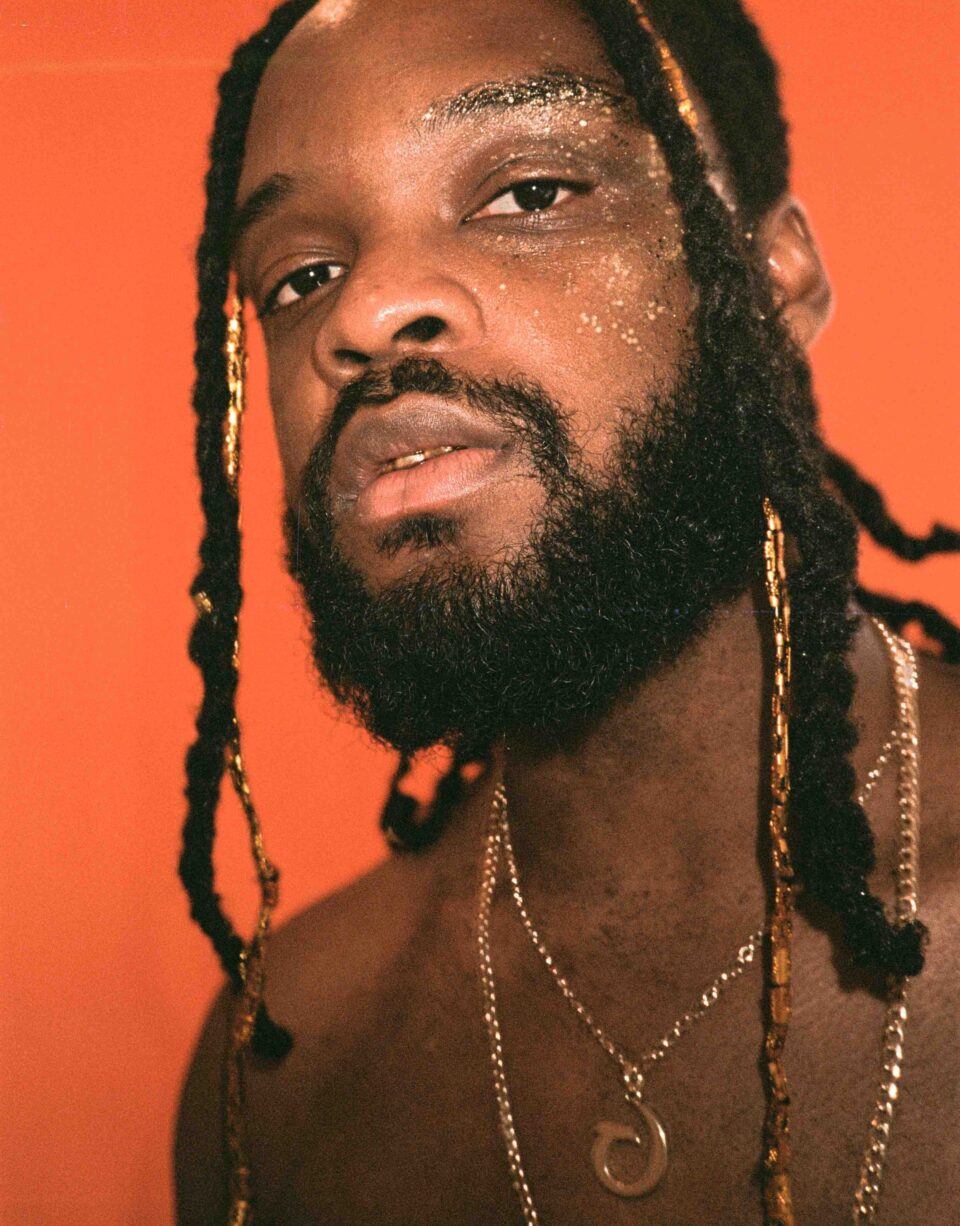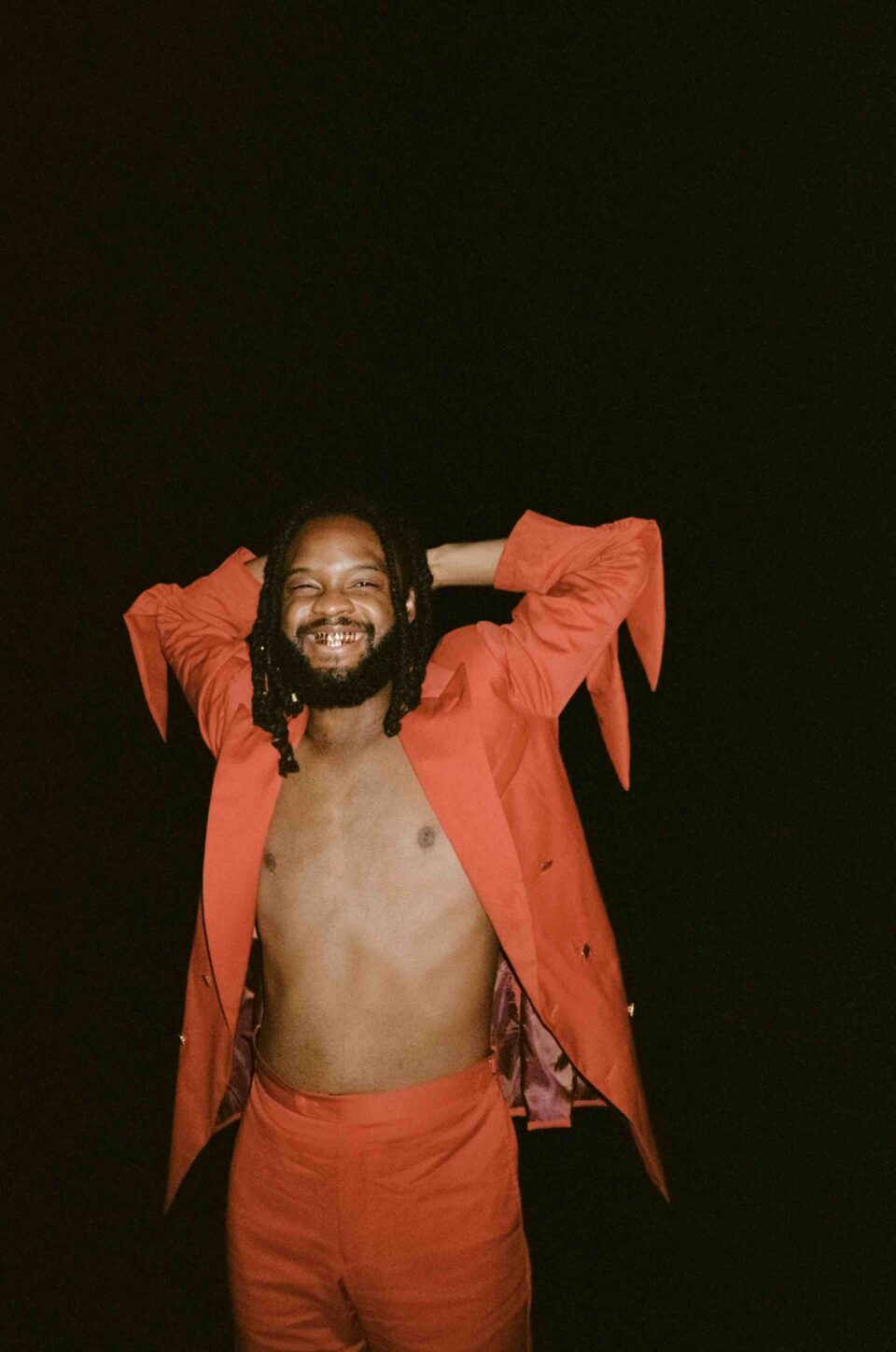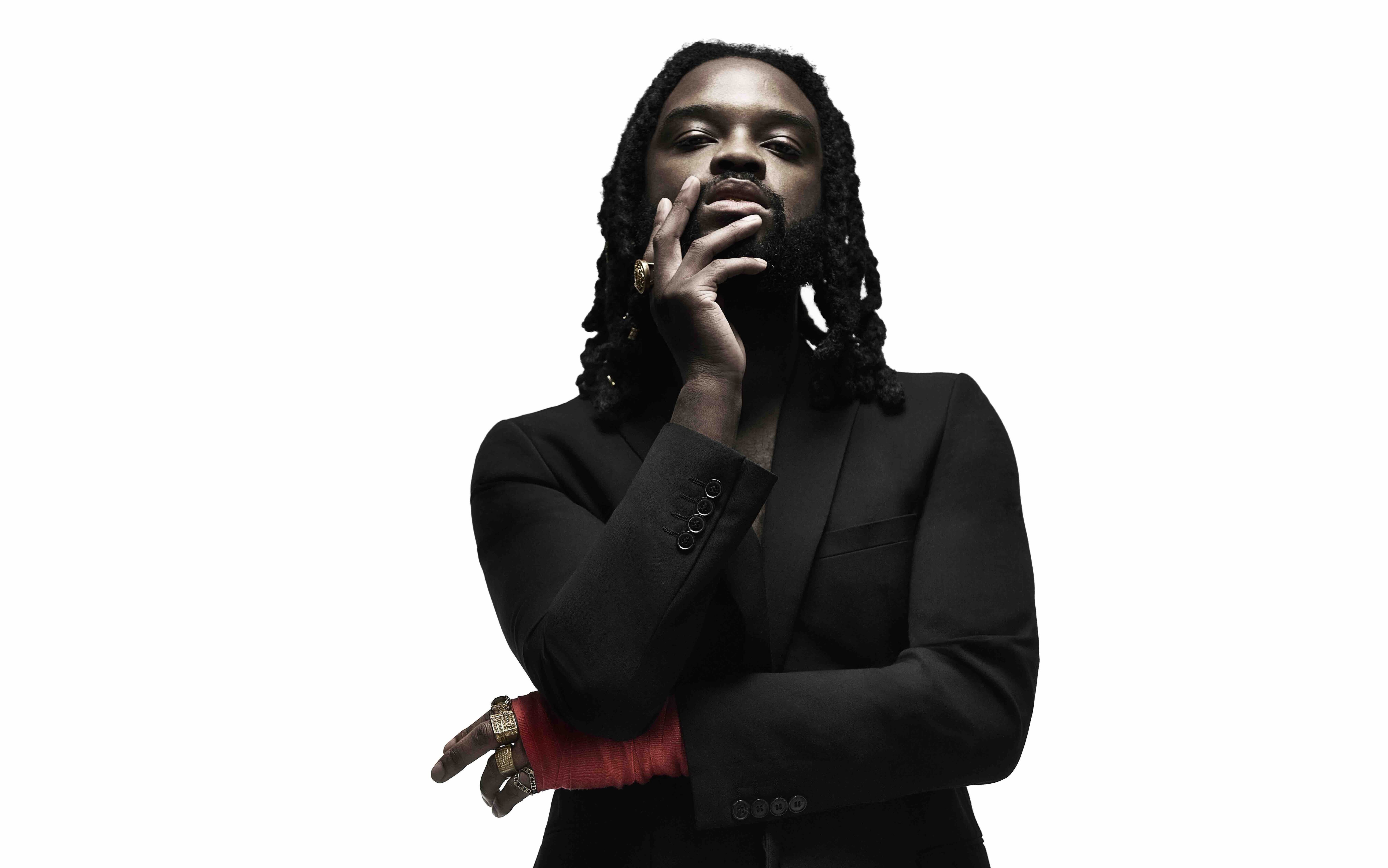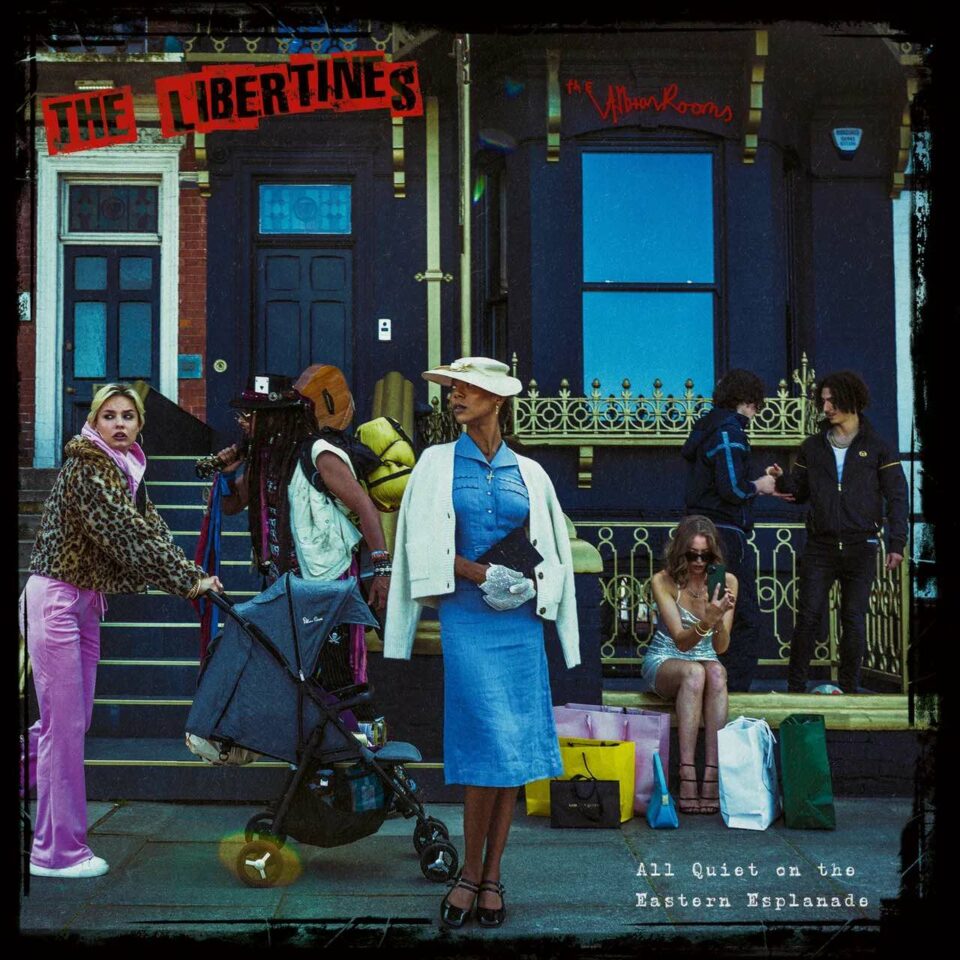Genesis Owusu always knew he was going to make something of himself. But after becoming the first Black artist to win an ARIA—the Australian equivalent of a GRAMMY—for Album of the Year and landing on President Obama's annual year-end Spotify playlist, Owusu has already accomplished more than he ever dreamed he would. The accolades, however, were the last thing on his mind when creating his critically acclaimed debut, Smiling with No Teeth. “[Australia] seemed to like what it likes, so when I was making this album, [an ARIA] wasn't even on my radar—this isn’t generally what’s getting validated at these kinds of establishments,” the Ghana-born, Australia-raised singer/rapper tells me. “Sweeping the ARIAs showed changes on a cultural level. It's a changing of the guard.”
When he first learned of Obama’s endorsement of “Gold Chains”—Owusu’s song about the commodification of Black artists—he thought it was an elaborate prank being played on him. He woke up to hundreds of YouTube notifications and couldn’t believe what he was seeing. “There was a bunch of comments on the video saying, ‘Obama brought me here,’ and I was like, ‘What does that mean?’”
Owusu moved from Ghana to Canberra, Australia with his family when he was only two years old, settling in a predominantly white neighborhood, which was a complete culture shock. That immigrant experience and the resulting alienation would shape his outlook and help inspire Smiling with No Teeth, which he released around this time last year. “I remember my older brother went to high school before me, and he went to a high school with, like, 2,000 kids and was the only Black kid,” Owusu explains. “I’m going in as this outsider, but they’re also experiencing the outsider for the first time, so no one really knows how to communicate with each other. It kind of developed the whole ‘outsider’ thing I do with the music as well.”
“When I was making this album, an ARIA wasn’t even on my radar—this isn’t generally what’s getting validated at these kinds of establishments. Sweeping the ARIAs showed changes on a cultural level. It’s a changing of the guard.”
Raised in a devoutly Christian household, Owusu went to church every Sunday with his mother until the age of 18. Although he respected religion and what it offered, it wasn’t for him—he instead found solace in analyzing hip-hop lyrics and learning about sampling through DatPiff, which also broadened his knowledge of jazz, punk, and other genres beyond hip-hop. He began to sneak into bars in his early teens to rap on stage, trying to perfect his lyrical prowess alongside his brother Kojo Owusu-Ansah, who raps under the moniker Citizen Kay. “When I was 14, I had this big beard and I looked fucking 30,” Owusu recalls. “It was almost like I was living a double life, going to school and on school nights getting into these bars and rapping with my brother. There was this one bar called Transit Bar that was my second home. Every week I was doing sets there, from age 14 to 18. I remember the venue manager was so excited when I finally turned 18 because it stopped being very illegal.”
Despite studying English literature, Owusu never read much, admitting he would often opt for the Sparknotes versions of his required reading. He was much more interested in analyzing samples and how verbose rappers like MF DOOM could effortlessly twist words to their liking. “We would study poetry in English class and, as a hip-hop head, I was thinking there were so many rappers that were so much better,” he shares. “Let’s break down some Lupe Fiasco, because he would use triple, quadruple entendres and stuff like that. All my favorite writers were rappers—just the way they skewed and twisted English. We should be studying that.”

After getting signed and releasing a few singles, Owusu grew bored of producing beats on a computer and told his manager to challenge him with something new. “He was like ‘bet,’ and put together the craziest musicians that he knows,” says Owusu. “And I literally just walked into the room that one day and had never met any of them.”
“When I was 14, I had this big beard and I looked fucking 30. It was almost like I was living a double life, going to school and on school nights getting into these bars and rapping with my brother.”
From those sessions, Smiling with No Teeth, a genre-bending amalgamation of Owusu’s life synthesized into 54 minutes, was born. Its lyrics are steeped in the political and flow effervescently. Thematically, Smiling is emblematic of what the late British philosopher Mark Fisher termed “capitalist realism,” a sense that the current system is the only viable option despite its many shortcomings, and imagining an alternative is virtually impossible. To Fisher, our current system is like John Carpenter's villain in The Thing: an ambiguous blob that incorporates everything into itself, good or bad.
Artistically, Owusu does something similar to Carpenter, using the symbol of the black dog, which functions like the villainous monster of The Thing as described by Fisher. The black dog character, however, stays static while it incorporates multiple negative meanings into itself, particularly racism and depression. This dog mirrors the external and internal issues faced by the narrator, and is always encroaching, much like another horror villain, Halloween’s Michael Myers. “I think the themes of the album got more relevant because of COVID, especially the mental health aspect,” says Owusu.
To him, the album was about venting deep frustrations; he also wanted to fight against the good-time funk-rapper image he was beginning to be pigeonholed into, and to show the world that he had more to say than his first few singles showcased. The result is a deep and nuanced lyrical look into his struggle to achieve homeostasis in a system that wasn’t built for him. “All of those funk tracks were tracks I made in, like, a two-week period, and they got released over a two-year period,” Owusu clarifies. “After those initial two weeks, I was making punk tracks…and all that other stuff, but no one was hearing it because I wasn’t able to put it out. There was that frustration to show the wholeness of who I am as an artist.”
“I’ve been reading Kafka books, and I watched this play the other day, Waiting for Godot. They’re all super absurdist, kind of existential vibes, but also drowned in dark humor. That’s putting me in a wild headspace. So yeah, there’s some crazy shit coming up for sure.”
Because of the unexpected popularity of Smiling with No Teeth, he does feel pressured to come up with his next big idea. However, he’s using the mindset of his first album to help him: focus on yourself and your craft, and the art will come. He’s also taking the time to discover new ideas, to find a different mindset from which to create his art. “I’ve been reading Franz Kafka books like The Metamorphosis and The Trial, and I watched this play the other day, Waiting for Godot by Samuel Beckett. They're all super absurdist, kind of existential vibes, but also drowned in dark humor. That's putting me in a wild headspace. So yeah, there's some crazy shit coming up for sure.”
His sudden fame hasn’t quite hit him yet, since he watched everything unfold on his phone from his room due to the pandemic. Despite the surrealness of it all, he’s still enjoying the ride. “I think it's funny that people are even Googling questions about me,” says Owusu when I mention that one of the most popular searches for his name is “Does Genesis Owusu really have gold teeth?” (he does not). “The fact that I have a Wikipedia page now, or the fact that people are trying to Google about my life, is like kind of fun,” he laughs. “It’s funny.” FL










